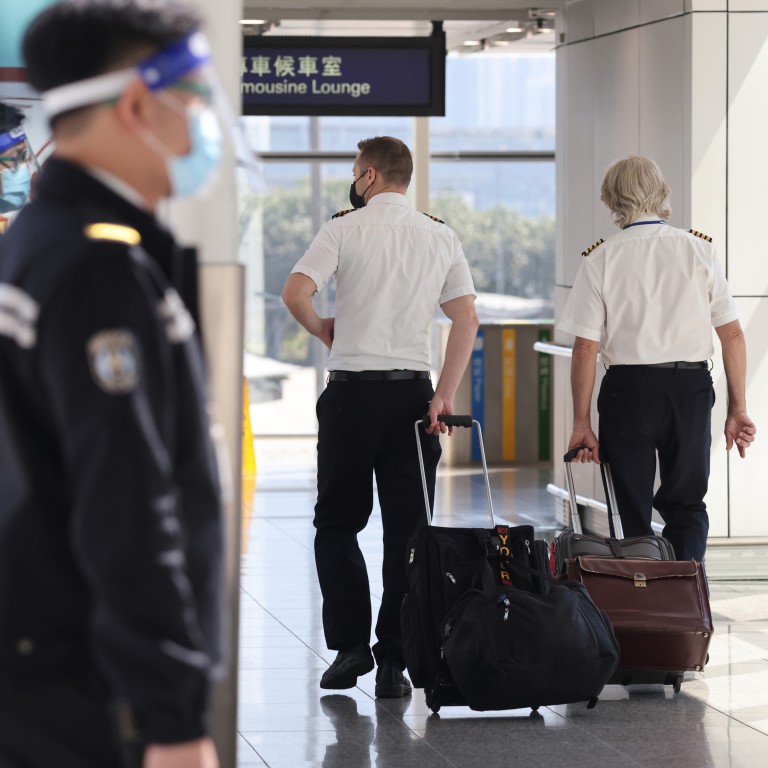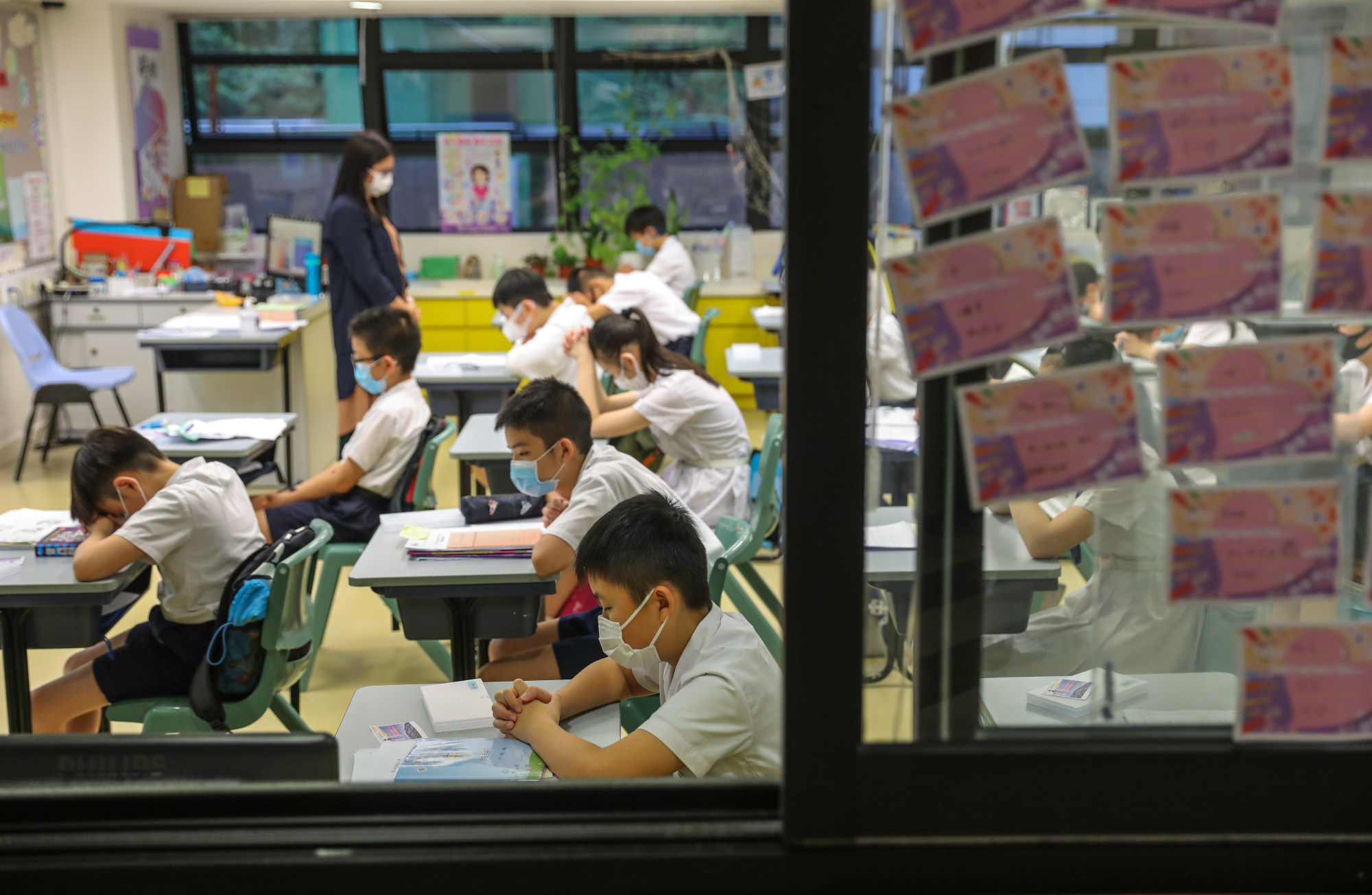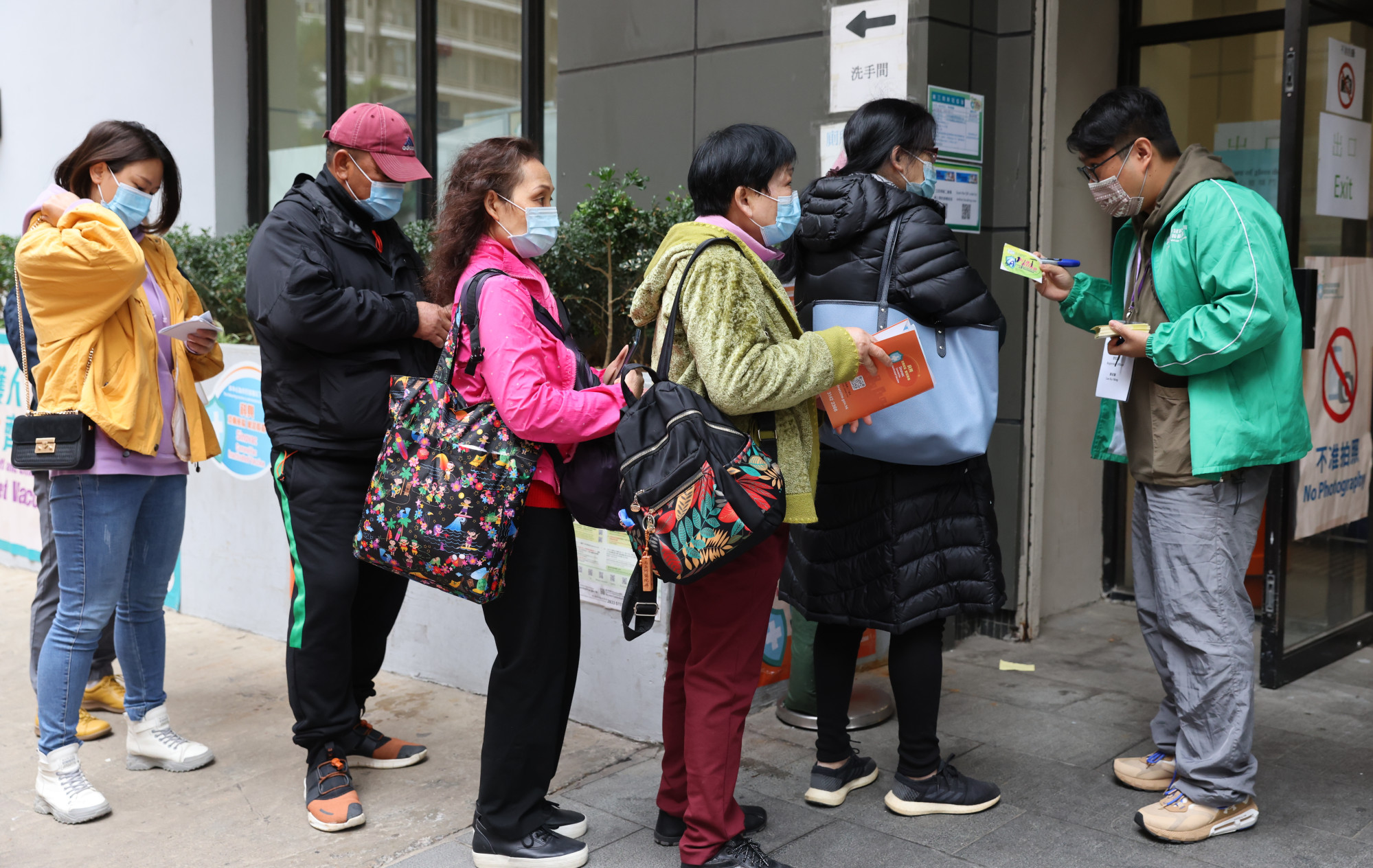
Coronavirus: Hong Kong to mandate hotel quarantine for cargo aircrew, as top health official warns ‘spark could ignite fifth wave’
- The tightening of measures for the previously exempt personnel came after two crew members were found to have flouted home isolation rules before testing positive
- New steps aimed at clamping down on potential Omicron outbreak could also see stepped-up vaccination rules for schools
Hong Kong will require returning air cargo crew to spend three days in hotel quarantine after two of the previously exempt personnel were found to have flouted home isolation rules during their Covid-19 incubation period.
The tightening of rules came as Centre for Health Protection controller Dr Edwin Tsui Lok-kin sounded the alarm over a recent spike in Covid-19 cases involving the Omicron variant – which the two crew members were suspected to be carrying – warning the risk of a community outbreak was “very high”.
“In Hong Kong’s situation, any spark could ignite the start of the fifth wave in the city,” Tsui said at a press conference on Tuesday.
He noted that the city’s number of confirmed and suspected Omicron cases had already risen to 74, with the variant accounting for 95 per cent of imported infections in the last two days.
Strict 3-day confinement for Hong Kong pilots under Covid-19 surveillance
Confirming an earlier Post report, Tsui said the Transport and Housing Bureau would begin requiring previously exempt Hong Kong-based air cargo crew who made stopovers abroad to isolate in a hotel for three days upon returning rather than at home to reduce the chance of the virus spreading into the community.
A spokesperson for the bureau confirmed new arrangements would take effect from Wednesday. Aircrew members will only be able to leave their quarantine hotel after a Covid-19 test taken on the third day comes back negative, and they will also be required to submit to daily tests for the rest of their first week back.
Cathay Pacific said it would be forced to consolidate its passenger and cargo flight schedules for the first quarter of next year amid the ongoing operational constraints. The airline disclosed on Tuesday night that it had been hit with a two-week ban on operating flights to the city from Los Angeles and Toronto over imported cases on the routes. The ban is set to take effect on Wednesday.
Cathay also confirmed after Tsui’s press conference that two of its crew members who tested positive and preliminary-positive on Tuesday had violated self-isolation rules upon returning to the city last week.
“The two cabin crew members have not fully complied with the company’s internal enhanced anti-epidemic measures during the three-day period after arrival. We will follow up on the cases in accordance with standard internal procedures,” Cathay general manager in corporate affairs Andy Wong said.
One of the infected crew members, a 45-year-old man, went shopping at Miniso in Sheung Wan on Christmas morning before taking a bus to a friend’s home in Tuen Mun for lunch. He then returned home by bus to Shek Tong Tsui in Western district.
The friend, 44 and also an aircrew member, subsequently tested preliminary-positive. He had returned to the city from Chicago on Saturday, the same day his friend came over for lunch. On Monday, he visited an Apple store and had lunch with family members at Moon Palace restaurant at the Festival Walk mall in Kowloon Tong, then went to get tested for the virus in Shek Tong Tsui.
Asked if the 44-year-old would be classified as a local case, the Centre for Health Protection said they would carry out genome sequencing to determine whether he caught the virus in the US or from his friend.
Another Cathay cabin crew member, a 46-year-old man, was confirmed as infected on Tuesday, but had mostly stayed inside his Discovery Bay home since his return to the city on Saturday.
All three Cathay staff were suspected to be carrying the Omicron variant.
The cases triggered two lockdowns on Tuesday night: one at a residential building at the Sea Crest on Hang Kwai Street in Tuen Mun where the preliminary-positive case lived, and another at a block in Peninsula Village in Discovery Bay where the 46-year-old crew member stayed.
The numerous places visited by the two cases who left their homes were also expected to prompt a long list of compulsory testing orders.
Hong Kong reports high of 14 new imported Omicron cases, braces for surge
Noting the 45-year-old patient’s high viral load, respiratory medicine expert Dr Leung Chi-chiu warned the man could potentially become patient zero in a new local outbreak.
“Everyone must pray for Hong Kong to come through unscathed. We were fortunate before, but we cannot be lucky every time,” he said. “We must be careful and monitor if there is an outbreak in the next two weeks.”
Leung added that the new three-day quarantine requirement for cargo aircrew was insufficient, saying it should be extended to a week, or ideally two.
“If officials are warning that any spark could ignite the fifth wave, they need to stop starting fires by allowing high-risk aircrew to return without tightening rules,” he said.
Government pandemic adviser Professor David Hui Shu-cheong of Chinese University said the three-day rule was “a good start”, but noted five would be safer.
“There is some risk [of a community outbreak] for sure, but people in Hong Kong have good compliance with masking, and that helps reduce the risk,” he said.
The other four Covid-19 cases confirmed on Tuesday involved arrivals from Britain, Pakistan and the United States. The six new infections took the city’s overall tally to 12,604 cases, with 213 related deaths. Fourteen preliminary-positive cases were also reported.

The arrangement under consideration would extend that to teachers and staff at private and government-subsidised schools as well, the source said, with students able to resume full-day in-person classes if the requirement was met.
According to a letter sent out by the Education Bureau on Tuesday, starting from January 10, teachers and staff at all local private and government-subsidised schools – with the exception of tertiary institutions – will be required to undergo Covid-19 testing every three days if they have not received at least one dose of vaccine.
The bureau added that it would keep an eye on any developments and “make timely announcements to schools” about vaccine bubble arrangements as appropriate.

Leading government pandemic adviser Professor Yuen Kwok-yung on Tuesday said the government should go even further, calling on authorities to roll out an aggressive vaccine passport plan complete with strict measures in a bid to fully restore normalcy by next Christmas.
He added that he hoped the city’s inoculation rate – including booster shots – could hit 90 per cent by no later than July, and suggested barring unvaccinated Hongkongers from workplaces and schools to drive the rate as high as possible.
“Summer is the best opportunity to combat the virus, as the transmission will be slower and the virus weaker. If we don’t seize this opportunity, Hong Kong will be in big trouble,” he said.
Yuen, an infectious disease expert with the University of Hong Kong, warned that the current approach of seeking to shut out the virus entirely was untenable.
“We can’t hold onto the zero-infection strategy. We should adopt a combative approach to Covid-19,” he said. “A vaccine passport is the only way. I can’t see any other solution.”
With universal vaccination, he continued, any breakthrough infections would be mild and brief, making it possible to handle the coronavirus just like the flu.
Yuen, along with fellow HKU professors Dr David Lung and Professor Ivan Hung Fan-ngai, made the same case in a Tuesday op-ed in the Chinese-language newspaper Ming Pao. Predicting new variants of the virus would continue to emerge, the trio argued that without a vaccine passport scheme, the current status quo “will be never-ending”.
The Food and Health Bureau, meanwhile, said it had been actively reviewing measures under the existing “vaccine bubble” and would announce new arrangements in a timely manner.
Separately, the Labour Department announced on Tuesday that existing pandemic-related rules applying to foreign domestic helpers and their employers would be extended. The rules include allowing employers to extend the validity period of existing contracts with their helpers for up to six months, and letting helpers ask for a deferral of up to one year on returning to their home country upon renewing their existing contract or starting a new one.
The government on Tuesday also moved to add Brunei Darussalam and Paraguay to its high-risk Group A starting from December 31. Non-Hongkongers are barred from travelling to the city from places listed in the category, while residents must undergo 21 days of hotel quarantine on arrival.
Additional reporting by Olga Wong, Cannix Yau and Rachel Yeo



